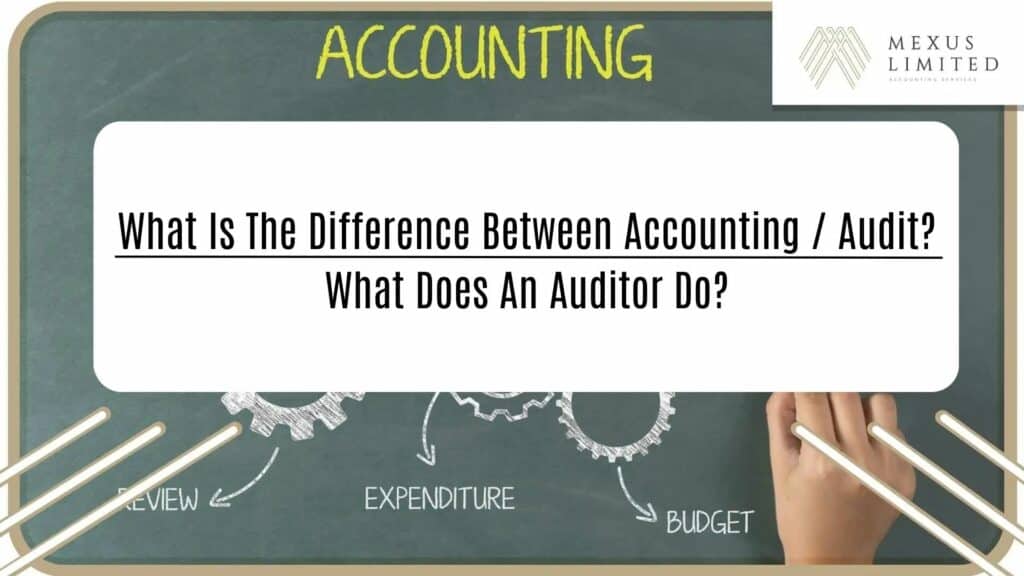What is the difference between accounting / audit? What does an auditor do?

Accountants and auditors (also known as Auditors) work on a business’s financial statements to ensure they meet standards for investors and governments to refer to. However, don’t confuse accounting with auditing. Although the two have similar names, accounting, and auditing deal with different responsibilities. If you outsource this part of the work, the company’s auditing and accounting fees are also different.
Continue reading below and you will easily understand the difference between accounting and auditing.
work content
At the outset, the job of an accountant is to prepare financial documents, monitor the bookkeeping of the company’s day-to-day operations, and prepare tax returns. As a result, accounting tasks are more common in the day-to-day, such as expense reimbursement.
What is an auditor?
Auditor’s work: The audit work is mainly responsible for verifying the accuracy of financials and taxation and will also try to explain or question some unclear expressions in the figures, so usually only see them a few times a year.
Difference between Auditor and Accountant / between Accounting and Audit
“Accounting”: bookkeeping, preparation of financial reports
Accounting (English: Accounting), generally as the Chief Financial Officer (CFO) or the company’s financial department, needs to handle all the company’s accounting records and prepare financial statements clearly and clearly.
Activity expenses in the enterprise are sorted and reconciled one by one, including all cash transactions, checks, transfers, banking affairs, interest payments, documents, taxes, and even salary items related to the personnel department.
Accountants with professional training in accounting will make the company’s financial situation clear and plan the next business activities according to future trends.
“Audit”: review and verify financial statements
Auditing English: Auditing, as the name suggests.
What is an auditor?
The audit work is to follow up on the financial records of the accountants, but also to review and verify their financial status to ensure that the information is accurate and fair.
Enterprises generally conduct quarterly or annual audits. The auditors collect the required information, analyze, and review the financial statements prepared by the accounting department, and check how reasonable and credible they are.
If it is a public company’s financial statements, it is also required to have auditors conduct an assessment based on generally accepted accounting principles (GAAP) every year to ensure that the company’s financial position is accurate.
Audit work does not have to be handled by an in-house position, but other companies or third parties can be appointed to do it.
In addition, if you want to subdivide the audit types, they can be roughly divided into:
1. Financial statement audit (English: Financial statement audit)
According to the Hong Kong Companies Ordinance, no matter the size of the company, the annual financial statements of a limited company must be audited and listed on the tax return as a supporting document for tax returns.
2. Audit and internal control (English: Audit and internal review)
It mainly constructs an inspection system to prevent illegal activities, such as fraud. The system also needs to provide solutions to protect the integrity, authenticity, and legality of the company’s assets, and to meet the management benefits.
3. Special purpose business audit (English: Audit report on special-purpose engagement)
Review and forecast the company’s financials for special reasons, such as listing plans, initial public offerings (IPOs), etc.
Professional qualifications
Accounting Professional Qualification
Accountants and auditors are both extremely important positions in the company’s finances. Even newly hired accountants must pass the recognized and unified Certified Public Accountant (CPA) exam to obtain professional qualifications and titles and perform accounting work for enterprises.
Auditor qualification
Auditors also need to have accounting expertise and pass the Certified Public Accountant (CPA) exam to become a certified public accountants. Therefore, about 150 hours of post-secondary education, almost at the master’s level, is also required, and the general practice requirements are higher than that of accountants.
The legislation of Hong Kong stipulates that only the practice unit can appoint auditors. Generally, the four major accounting firms in Hong Kong will hire those with a bachelor’s degree or above, but it is not a requirement.
The above information is for reference only. If in doubt, we welcome your tax inquiries.
#Accountant work content #auditing company #auditing what to do


